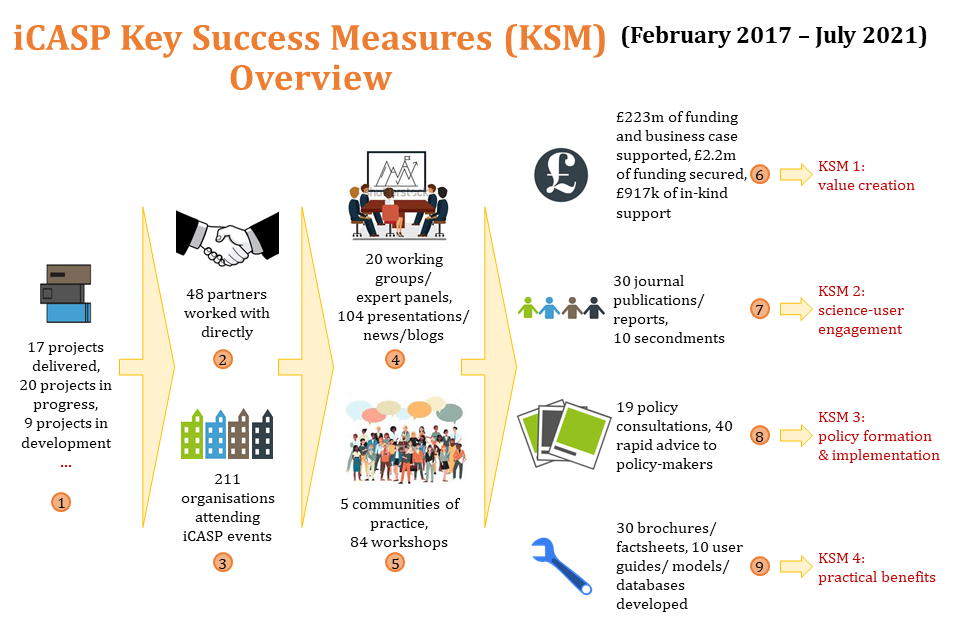The flagship iCASP programme is making a real difference within catchment management – on the environment, economy and society
Our ambition from the outset was to turn the £5m of initial funding that we received from the Natural Environment Research Council into £50m of benefits for Yorkshire.
These benefits include economic benefits such as influencing investments, identifying cost savings, generating funding; creating new products and jobs and improving the environment and resilience to climate change.
The monitoring and evaluation tools we use to monitor the impact iCASP is having in the region demonstrates that we have already surpassed our original goal – and our plan is to continue to work with partners to address catchment management issues.
We have contributed to business cases with an investment value of more than £222 million, created 10 jobs and involved at least 192 organisations.
Three examples of the kind of impact achieved by iCASP projects are:
Water Efficiency Project
Developing a policy brief to help Leeds City Council set a water efficiency standard for new homes.
Natural Flood Management Community of Practice
Creating a forum for networking, learning and disseminating best practice amongst people working on different natural flood management projects across Yorkshire.
Wortley Beck Workshop
Organising a workshop for a wide range of organisations to identify potential future improvements in the Wortley Beck catchment. Discussions were used to influence the business case which resulted in £600k towards a £5m Wyke Beck Improvement scheme alongside other improvement schemes in the catchment.
We use four key success measure areas to consistently monitor important activities and outputs that demonstrate the impact of our projects: value creation, science user engagement, implementation and formation of policy and practical benefits.
To know more about how we measure impact, email Dr Hebin Lin, iCASP Impact and Economic Evaluator

